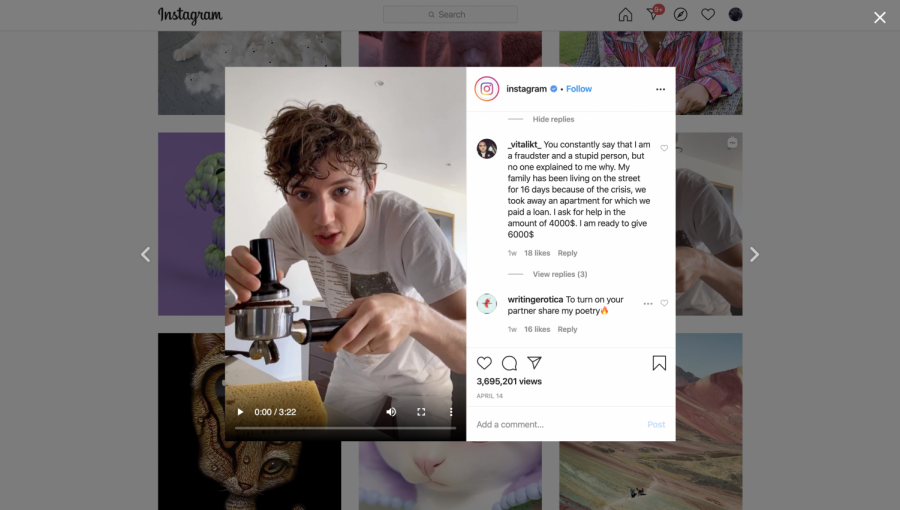Photo courtesy / Christian Quinones
A controversial comment found on the Instagram page of a popular music artist, Troye Sivan, sparks conflicts with other users.
Section 230 and social media
April 30, 2020
Section 230 is a law that protects companies from lawsuits if third-party clients share hate speech, sex work, or the like. The attorney general’s attempts to repeal the law completely could result in social media companies taking more accountability for the content shared on their platforms.
Pornographic content is available everywhere, and reducing such content being available on social media platforms would be more prioritized. Terrorism, hate speech, and the like could be more easily taken care of if social media platforms were subjected to the possibility of a lawsuit. Tech and social media giants should not be protected from responsibility if they allow content that promotes violence. The effects on social media platforms would be interesting, learning what social media companies classify as “lawsuit” viable.
Would that mean social media companies would possibly take advantage of this? Politics have been transfused and diffused through memes in this modern-day era. In future elections, social media companies could manipulate this to push their own agenda and remove material pertaining to hate speech that is just political discourse. Lawsuits against social media companies will be tricky and difficult to cover, because how exactly will they be able to prove Instagram/Facebook/Twitter ignored it? How will they prove that, Instagram for instance, is promoting hate speech if it cannot have the ability to monitor literal millions of accounts?
The implications of such lawsuits are bad, but how exactly will they be able to prove this? Will revoking Section 230 do any good or will it result in inaction by social media companies, continued ignorance, and a claim that “they cannot monitor all the clients on their platform?”
